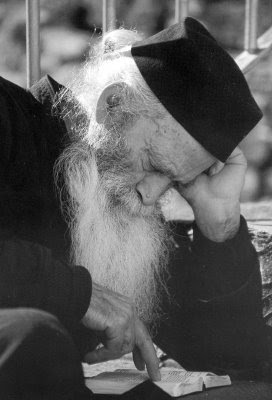By Metropolitan Hierotheos of Nafpaktos
In many of his texts St. Gregory speaks of man's freedom of choice, which is not abolished by God, and also about the perpetuity of Hell. Both these positions of his remove every notion of the theory of the restoration of all things as affirmed by Origen.
In his great catechetical oration, in which he refers to the Catechism and the value of Baptism, at the end he continues the subject of the change in a man's whole existence which comes about by his choice. He writes that holy Baptism is called birth from above, that is, it is man's rebirth and reconstitution, but it does not alter his characteristic features. This human nature does not of itself admit of any "change by Baptism", and neither is his reason or intelligence changed, nor his cognition nor any other characteristic of human nature. This must take place through man's struggle before and after Baptism. The grace of God which we receive through Baptism does not bring about our rebirth unless we ourselves play a part in it.
In many of his texts St. Gregory speaks of man's freedom of choice, which is not abolished by God, and also about the perpetuity of Hell. Both these positions of his remove every notion of the theory of the restoration of all things as affirmed by Origen.
In his great catechetical oration, in which he refers to the Catechism and the value of Baptism, at the end he continues the subject of the change in a man's whole existence which comes about by his choice. He writes that holy Baptism is called birth from above, that is, it is man's rebirth and reconstitution, but it does not alter his characteristic features. This human nature does not of itself admit of any "change by Baptism", and neither is his reason or intelligence changed, nor his cognition nor any other characteristic of human nature. This must take place through man's struggle before and after Baptism. The grace of God which we receive through Baptism does not bring about our rebirth unless we ourselves play a part in it.






